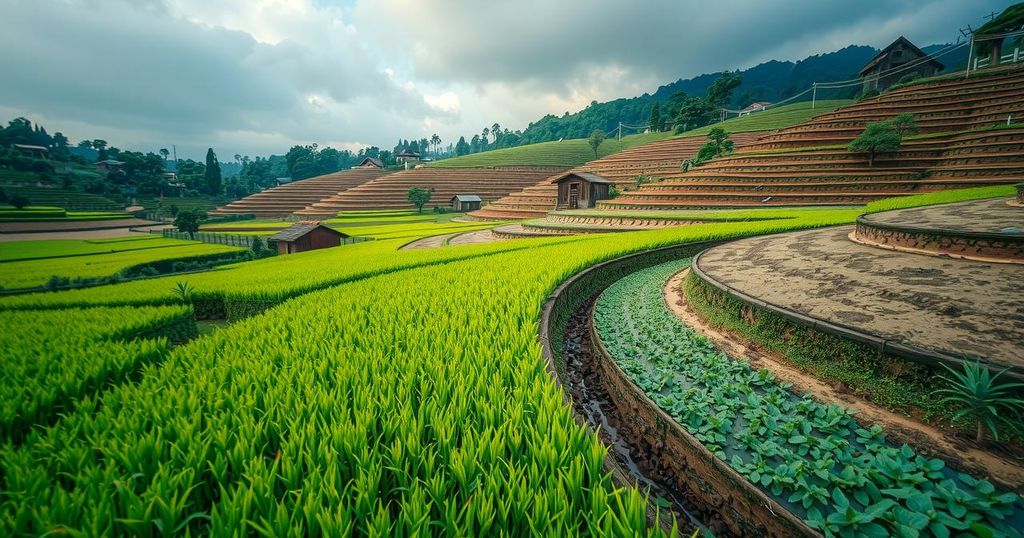Fairtrade producers are developing and implementing climate change adaptation plans to combat challenges such as rising temperatures and pests. As of 2022, 502 organizations have crafted these strategies, with high implementation rates noted. Key measures include disease-resistant crops and improved soil management. Continuous training and robust data collection are recommended for effective adaptation amidst escalating climate impacts.
Fairtrade producer organizations are increasingly adopting climate change adaptation plans (CCAPs) to enhance agricultural resilience, as presented by Fairtrade International’s recent study. The report indicates that these plans have primarily been developed by coffee farmers, although other sectors such as cocoa, tea, bananas, and sugar are also taking action to combat rising temperatures and environmental disruptions. By the end of 2022, 502 Fairtrade certified organizations had crafted adaptation strategies, amounting to approximately 25% of global producers, with 96% actively implementing these initiatives. The implementation of CCAPs has proved beneficial, with many producers reporting improved soil quality, healthier crops, and enhanced yields. Key measures include the cultivation of disease-resistant crop varieties, improved soil management, and efficient water use practices. The success of these measures relies heavily on training provided to farmers, enhancing their understanding of climate change issues, and ensuring access to necessary technical and financial resources. Moreover, an analysis of the adaptation plans reveals a need to improve information quality. While many plans are of sufficient quality, some lack contextual data, which is vital for understanding the relationship between climate threats and adaptation strategies. Researchers suggest that organizations must establish robust data collection and monitoring systems to effectively assess the impacts and efficacy of their measures. Furthermore, as climate changes become increasingly significant, the existing adaptation strategies may not suffice. Thus, more comprehensive measures aimed at collective action among producer organizations are recommended. This collaborative approach would allow for transformative changes in agricultural practices, ensuring long-term sustainability. Capacity building for ongoing education and investment in advanced technologies will be pivotal for farmers’ adaptation efforts moving forward.
The topic of climate change adaptation within Fairtrade producer organizations highlights the pressing need for agricultural resilience in the face of global climatic shifts. Fairtrade International’s study emphasizes the proactive responses by these organizations to develop specific strategies that address the unpredictable challenges posed by rising temperatures, pests, and water shortages. With a focus on practical measures and collaborative efforts, this initiative demonstrates the importance of sustainable agricultural practices that not only protect farmers’ livelihoods but also contribute to global environmental goals.
In conclusion, Fairtrade producer organizations are actively engaging in climate change adaptation through the implementation of robust plans that enhance agricultural resilience. While positive outcomes have been reported, further improvements in data collection, training, and collaborative approaches are essential for long-term success. As climate challenges escalate, it is imperative that producers remain adaptable and invest in transformative solutions to ensure sustainable agricultural practices.
Original Source: www.fruitnet.com






